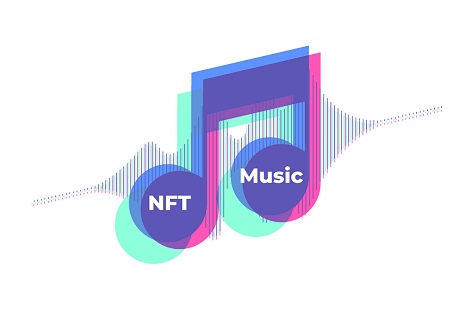blockchain hub
Exploring Blockchain Technology
Blockchain technology, often simply referred to as blockchain, is reshaping the fabric of various industries with its decentralized architecture and robust security features. At its core, blockchain is a digital ledger technology that records transactions across multiple computers in such a way that the registered transactions cannot be altered retroactively. This technology underpins famous cryptocurrencies like Bitcoin and Ethereum, but its application reaches far beyond digital currencies. From enhancing transparency in the supply chain to revolutionizing financial services through smart contracts and secure transactions, blockchain's potential is vast and varied. This pillar page delves into the multifaceted world of blockchain, exploring its origins, structure, types, and the sweeping impact it promises for digital and traditional sectors alike.
As we dissect the intricate workings of blockchain networks—including public, private, consortium, and hybrid blockchains—we will uncover how these technologies manage to uphold security and integrity while eliminating the need for intermediaries. We will also examine the various use cases across different industries, spotlight the leading blockchain companies driving innovation, and discuss the emerging trends that could define the future of blockchain. With an eye on the advantages and addressing the disadvantages, from energy consumption concerns associated with Bitcoin mining to the challenges of blockchain adoption, our exploration will provide a comprehensive overview that equips businesses and enthusiasts with the knowledge to navigate this revolutionary technology.
Revolutionizing Transactions: The Role of Smart Contracts in Blockchain Networks
Smart contracts represent a transformative component of blockchain technology, fundamentally automating contractual agreements with code directly embedded in blockchain networks like Ethereum and FLOW. These digital contracts ensure that once predefined conditions are met, actions are executed automatically, enhancing the security and efficiency of transactions without the need for intermediaries. This capability is particularly significant in the realms of finance and digital assets, where smart contracts underpin the operations of non-fungible tokens (NFTs). NFTs rely on smart contracts for establishing indisputable ownership and provenance of unique digital items, streamlining transactions in industries such as digital art and collectibles.
FLOW blockchain, known for its developer-friendly approach and high scalability, excels in supporting dynamic applications, including games and advanced digital platforms that utilize smart contracts for complex operations. Its innovative architecture facilitates high transaction throughput at reduced costs, making it an ideal ecosystem for deploying decentralized applications (dApps) that leverage blockchain for more than just cryptocurrency exchanges. By integrating smart contracts to manage digital transactions and ownership securely and transparently, FLOW is at the forefront of expanding blockchain use cases beyond traditional financial services, driving forward the future of blockchain technology in various industries.
List of Blockchain Articles

10.03.2025

Marcin Sadowski-CTO @ JS and Web3 Expert
Top Blockchain Conferences That You Cannot Miss in 2025
Top blockchain conferences in 2025 around the world. Unique selection by the Mobile Reality team!
Read full article

15.01.2025

Marcin Sadowski-CTO @ JS and Web3 Expert

Aneta Wodarz -HR Manager
Explore the Impact of HR Blockchain Technology
Discover how HR blockchain technology is transforming the workplace. Learn more about the future of HR tech. Unlock the potential with HR web3 solutions.
Read full article

29.05.2024

Marcin Sadowski-CTO @ JS and Web3 Expert
Matt Sadowski-CEO @ Custom Software Development Expert
DePIN: Power of Blockchain for Infrastructure Networks
Discover how the Blockchain Revolution is reshaping Physical Infrastructure Networks. Learn about DePIN's impact. Take the first step towards innovation!
Read full article

10.01.2025

Marcin Sadowski-CTO @ JS and Web3 Expert
Matt Sadowski-CEO @ Custom Software Development Expert
Maximize Your NFT Marketplace Development in 2025
Discover how to unlock the full potential of NFT marketplace development in 2025. Maximize your profits with cutting-edge strategies. Learn more now!
Read full article

20.12.2024
Matt Sadowski -CEO @ fintech expert and advisor

Marcin Sadowski-CTO @ JS and Web3 Expert
Leveraging Blockchain for Fintech: A Look Ahead to 2025
Discover the future of blockchain in fintech with insights on industry trends and opportunities for 2025. Stay ahead in blockchain finance!
Read full article

15.01.2025

Stanislav Naborshchikov-Solutions Specialist
The true value of NFT is not only about money
The recent interest in NFTs has led to much discussion about their potential value as financial assets.
Read full article
As CTO of Mobile Reality, I have witnessed firsthand the transformative impact of blockchain applications across various sectors. From enhancing security in financial transactions to streamlining operations in supply chains, blockchain has introduced a new era of efficiency and transparency. Our commitment is to leverage the diverse applications of this technology, from smart contracts on FLOW and Ethereum to decentralized finance solutions on public blockchain networks, to deliver robust, innovative solutions. By understanding the intricate structure and design of blockchain—from private to consortium networks—we aim to propel industries forward, reduce the need for intermediaries, and address the pressing challenges of security and scalability. The future of blockchain is here, and at Mobile Reality, we are at the forefront of harnessing its potential to drive real-world change
Leading Blockchain Companies

06.12.2024
Matt Sadowski-CEO @ Custom Software Development Expert
Top 10 Web3 Blockchain Real Estate Companies
Read full article

14.01.2025
Matt Sadowski-CEO @ Custom Software Development Expert
Blockchain Web3 Music Companies you Should Know in 2025
Read full article
Blockchain Technology FAQs: Understanding the Basics and Beyond
Blockchain technology is a digital ledger system where transactions are recorded in blocks and linked together in a chain. It uses decentralization and cryptographic hashing to make the history of any digital asset unalterable and transparent.
There are four main types of blockchain networks: public blockchains, private blockchains, consortium blockchains, and hybrid blockchains. Each type serves different purposes and offers varying degrees of accessibility and security.
Smart contracts are self-executing contracts with the terms of the agreement directly written into code on the blockchain. They automatically execute, control, or document legally relevant events and actions according to the terms of a contract or an agreement.
The advantages of blockchain include enhanced security, improved traceability, increased efficiency and speed of transactions, and reduced costs. However, disadvantages include significant energy consumption, scalability challenges, and the complexity of technology adoption.
In financial services, blockchain offers the ability to streamline processes, secure transactions, lower costs, and reduce fraud. It is particularly transformative in areas such as payments, settlements, and compliance through decentralized finance (DeFi) applications.
Blockchain in real estate revolutionizes how property sales and rentals are conducted by reducing fraud, speeding up transactions, lowering costs, and offering transparent processes through smart contracts and secure, decentralized databases.
Blockchain enhances transparency and traceability in supply chains, allowing companies to track the origin and journey of products from production to delivery. It helps reduce losses from counterfeit and gray market, improve compliance, and streamline logistics.
Non-fungible tokens (NFTs) are unique digital assets verified using blockchain technology, representing ownership of specific items. They are used primarily in digital art, collectibles, and media, leveraging blockchain's security to verify authenticity and ownership.
Bitcoin operates on a public blockchain network as a decentralized currency, meaning it does not rely on a central authority for transaction management or issuance. Instead, transactions are verified by network nodes through cryptography and recorded in a public distributed ledger called a blockchain. This ensures security and transparency, allowing every participant on the network to track Bitcoin transactions without the need for traditional banking systems.
A public blockchain is a type of blockchain where anyone can join and participate in the reading, writing, and auditing of the ledger. It is completely decentralized, making it highly secure against fraudulent activities as it is maintained by numerous participants. Public blockchains are often used for cryptocurrency systems, like Bitcoin and Ethereum. In contrast, private blockchains are restricted to specific members, offering faster transactions and more privacy but less decentralization than public blockchains.
Subscribe to our newsletter!
Subscribe to our newsletter to be up to date with publications, articles, and insights from tech, fintech, proptech, and blockchain industries.